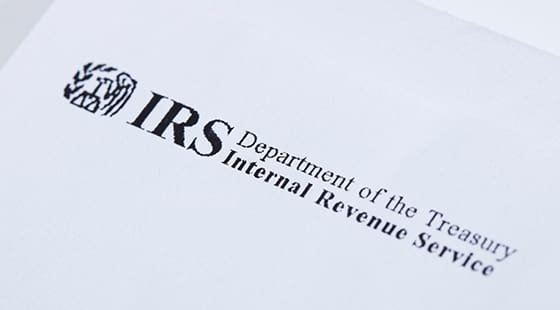Search Posts
Recent Posts
- February 2026- Q&A, Virtual Currency February 4, 2026
- Itemized Deductions-Interest Paid February 4, 2026
- High Income Taxpayers February 4, 2026
- Tax Time! January 6, 2026
- Capital Gains and Losses January 6, 2026
Categories
Subscribe!
Please enter your name.
Please enter a valid email address.
Thanks for subscribing! Please check your email for further instructions.
Something went wrong. Please check your entries and try again.
A letter from the IRS? What taxpayers need to know if they receive a notice from the IRS
September 3, 2020 / Kaufman Accounting / Comments Off on A letter from the IRS? What taxpayers need to know if they receive a notice from the IRS

According to the Internal Revenue Service (IRS), they mail letter or notices to taxpayers every year for many different reasons.
Here are some DO’s and DON’Ts for taxpayers who receive a letter or notice from the IRS:
- Don’t ignore it. Most IRS letters and notices are about federal tax returns or tax accounts. Each notice deals with a specific issue and includes specific instructions on what to do.
- Don’t panic. The IRS and its authorized private collection agencies do send letters by mail. Most of the time, all the taxpayer needs to do is read the letter carefully and take the appropriate action.
- Don’t reply unless instructed to do so. There is usually no need for a taxpayer to reply to a notice unless specifically instructed to do so. On the other hand, taxpayers who owe should reply with a payment. IRS.gov has information about payment options.
- Do take timely action. A notice may reference changes to a taxpayer’s account, taxes owed, a payment request or a specific issue on a tax return. Acting timely could minimize additional interest and penalty charges.
- Do review the information. If a letter is about a changed or corrected tax return, the taxpayer should review the information and compare it with the original return. If the taxpayer agrees, they should make notes about the corrections on their personal copy of the tax return and keep it for their records.
- Do respond to a disputed notice. If a taxpayer doesn’t agree with the IRS, they should mail a letter explaining why they dispute the notice. They should mail it to the address on the contact stub included with the notice. The taxpayer should include information and documents for the IRS to review when considering the dispute. People should allow at least 30 days for the IRS to respond.
- Do remember there is usually no need to call the IRS. If a taxpayer must contact the IRS by phone, they should use the number in the upper right-hand corner of the notice. The taxpayer should have a copy of their tax return and letter when calling the agency.
- Do avoid scams. The IRS will never contact a taxpayer using social media or text message. The first contact from the IRS usually comes in the mail. Taxpayers who are unsure if they owe money to the IRS can view their tax account information on IRS.gov.
- DO CONTACT OUR OFFICE. We are here to help! If you opted in to the Audit Protection Plan (APP) for the 2019 tax filing, the plan provides up to 4 hours of coverage in the event of a letter or notice from the IRS (or other tax authority) and up to 10 hours in the even of an Audit. If you chose to not opt in to the APP or if you were not eligible to participate in the program this year, we still urge you to contact us! We are here to help you to understand any letter or notice that you receive and can help with correspondence or resolution.
Posted in Individual Tax
